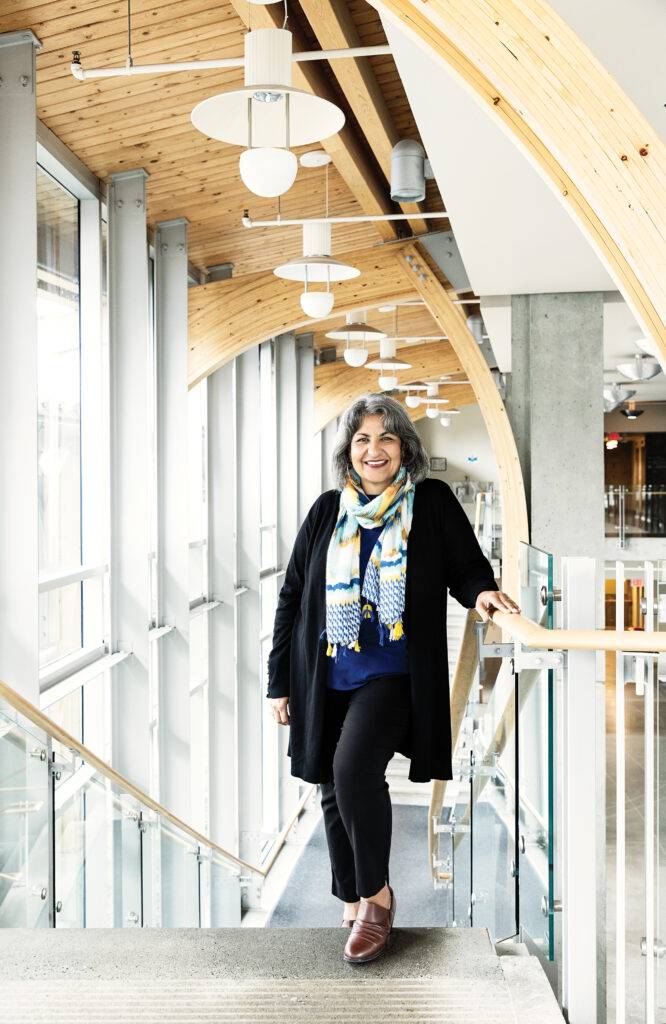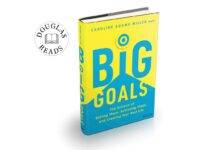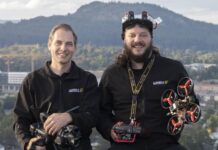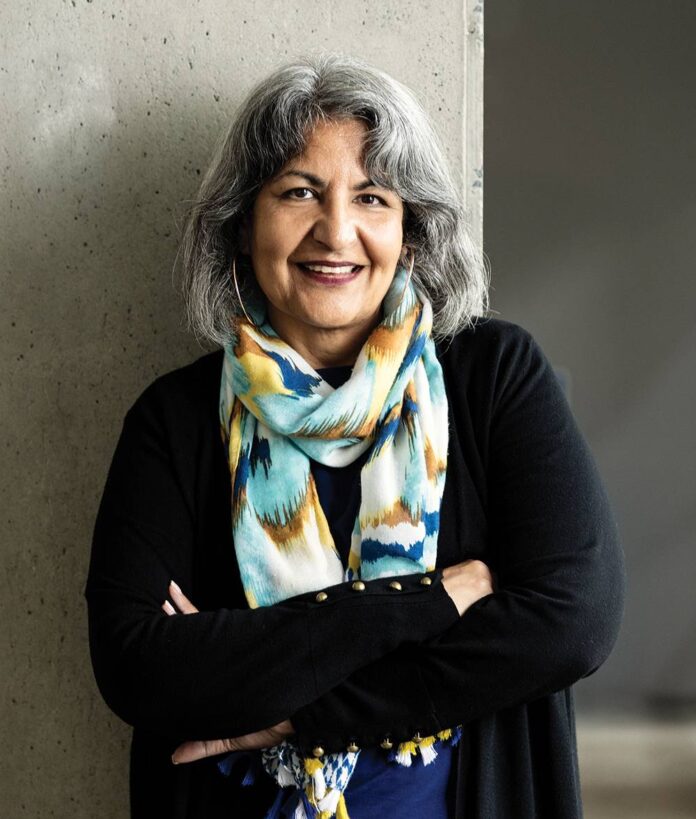Collaboration and co-operation come up a lot when you talk to the new dean of the Peter B. Gustavson School of Business.
Since taking over the job at the University of Victoria a year ago, overseeing 1,000 undergrads, 150 to 200 grad students and 130 faculty and staff, Anita Bhappu is continuing the school’s innovative approach and core values of sustainability, entrepreneurship and an interdisciplinary and collaborative approach.
Bhappu has plenty of experience outside of the classroom, including several years working as a product development engineer for Procter & Gamble.
Bhappu was born in Karachi, Pakistan, where she lived until her early teens, when her family emigrated to Arizona. She attended the University of Arizona for an undergraduate degree in chemical engineering before also earning a PhD in organizations and management there.
She’s already implementing a philosophy of collaboration and engagement, saying the school is ready to step out and ask people’s opinions and ensure there’s community involvement.
Douglas: What appealed to you about the role at Gustavson?
Anita Bhappu: I saw myself and my journey in what I read about Gustavson — the international, the innovative entrepreneurship piece, the sustainability piece and also this idea of the way we teach business here, that integrative view of business, that was my background. I knew I wasn’t going to fit a traditional business school.
Douglas: Was being able to set the culture and tone part of the attraction?
AB: I’m training my own people to be comfortable with stepping into courageous conversations. But that requires people to trust and have psychological safety and that’s the human organizational perspective I bring. How do you build a culture? How do you build the organization and how do you structure people and attach them in teams so that we get there and people can have innovative solutions because they’re actually expressing truly what they think? That’s how you get to better decisions.
Douglas: Tell me about when you went back to school for post-grad work.
AB: My dissertation and early research were framed around the issues that I experienced at Procter & Gamble about managing teams that are both diverse, in terms of culture and demographics, but also function and background. P&G had teams that were distributed around the globe. How do you manage that complexity? How do you deal with the conflict that comes up? How do you help the teams communicate and align? I went back to grad school to see if I could learn something about how to do this better.
Douglas: One of Gustavson’s pillars being entrepreneurship intrigued you, didn’t it?
AB: That was a point of connection for me. The people here have that and I relate to that and I think we also do a lot of entrepreneurship training and a lot of innovation and I think that goes back to the engineer in me.
Douglas: You’ve talked about “intrapreneurship.” How is that different from entrepreneurship?
AB: We need that entrepreneurial mindset and action within to drive change from the inside out. Sometimes companies set up competitive entities within their corporate structure to develop the next solution that would drive them out of market so that they can capitalize on that innovation. So it’s this concept in organizations where you want to create safe spaces or groups inside that are insulated in a good way from the bureaucratic inertia and can push that inertia by developing solutions, but with that inside acknowledge so they can really bring that change.
Academia is about critical thinking, and really learning how to think and make decisions that are evidence-based.
Douglas: Isn’t that the role of a consultant?
AB: That’s one of the problems with the consulting model where you have external people come in. They do their analysis, they give you a solution or a set of recommendations, and then they walk away. And even if they stay to try to implement it, most of it fails because they’re not from the inside. So the intrapreneurship is change agents who are bringing perspectives and driving innovation from the inside out.
Douglas: What changes at business schools don’t thrill you?
AB: There’s this proliferation of degrees and various speciality hot areas … I worry we are losing sight on why you get a degree. Academia is about critical thinking, and really learning how to think and make decisions that are evidence-based. We seem to be moving to degrees that are a compilation of technical skills. Education never was about always aligning to the market for a job. It was about creating thoughtful, mindful citizens first.
Douglas: Is this another reason you decided to take this job?
AB: Why Gustavson for me was such an attractive choice is because that’s our DNA here. We focus on that integrative product, teaching students how to be thoughtful, mindful, responsible people in the world. We’re not just training your next employee.
Douglas: How does a business school work with Victoria’s business community?
AB: My understanding is our school came about as Victoria’s business school and the business community in Victoria essentially lobbied for it. We are going back to those roots to ask the community how can we help?

Douglas: What philosophies are you bringing in?
AB: There are two mantras my people walk around saying: “We’ve got to stop doing some good things to do some great things.” And the other one is, “We’ve got to stack value because we no longer are resourced where we can use one strategy for one outcome.” We need one strategy to affect multiple outcomes and you only can do that if you’re collaborating and communicating well.
Douglas: If you could tell business grads one thing, what would it be?
AB: When you’re asked to share resources, when people ask you to help or to give, bring an abundance mindset. And when you’re taking or using resources, bring a scarcity mindset.
I’m training my own people to be comfortable with stepping into courageous conversations.
Douglas: What does the business school of the future look like?
AB: It will be less competitive and more collaborative. I don’t think there’s room for the business school of the past much like, quite frankly, the extractive-only profit model. We’re talking about triple bottom line or the idea of people-planet-profit and, in order to do planet and people, along with profit, by definition you’re stepping away from a competitive mindset to a more holistic or integrative view. And while there’s a lot of lip service to that word sustainability, whether the schools are actually executing at that level is another question. Gustavson is.
Douglas: The TV show Succession paints the business elite as incredibly ruthless. Is this accurate?
AB: [Laughs.] I have never met any of those people in real life. But I think it’s a very, very interesting narrative of what people want to believe … but in the 30 years or so that I’ve been around I’ve not met those people.
Douglas: What advice can you give to an entrepreneur who never went to business school?
AB: You have to invest in learning. You have to seek it and I would say that sometimes when you’re in the experience [of entrepreneurship] you’re focused on the doing. But in order to learn from the doing you have to reflect on it and I think academia pushes you to reflect while you’re learning and doing.
Douglas: Tell me about what Gustavson’s offering its students other than conventional business training.
AB: We spend a lot of time teaching people how to work together. And we do that mindfully in the curriculum in what we call experiential learning, through teamwork and coaching and that’s — people have called it in the past soft skills, they’re called power skills now — learning to work with others and work with different others.
























